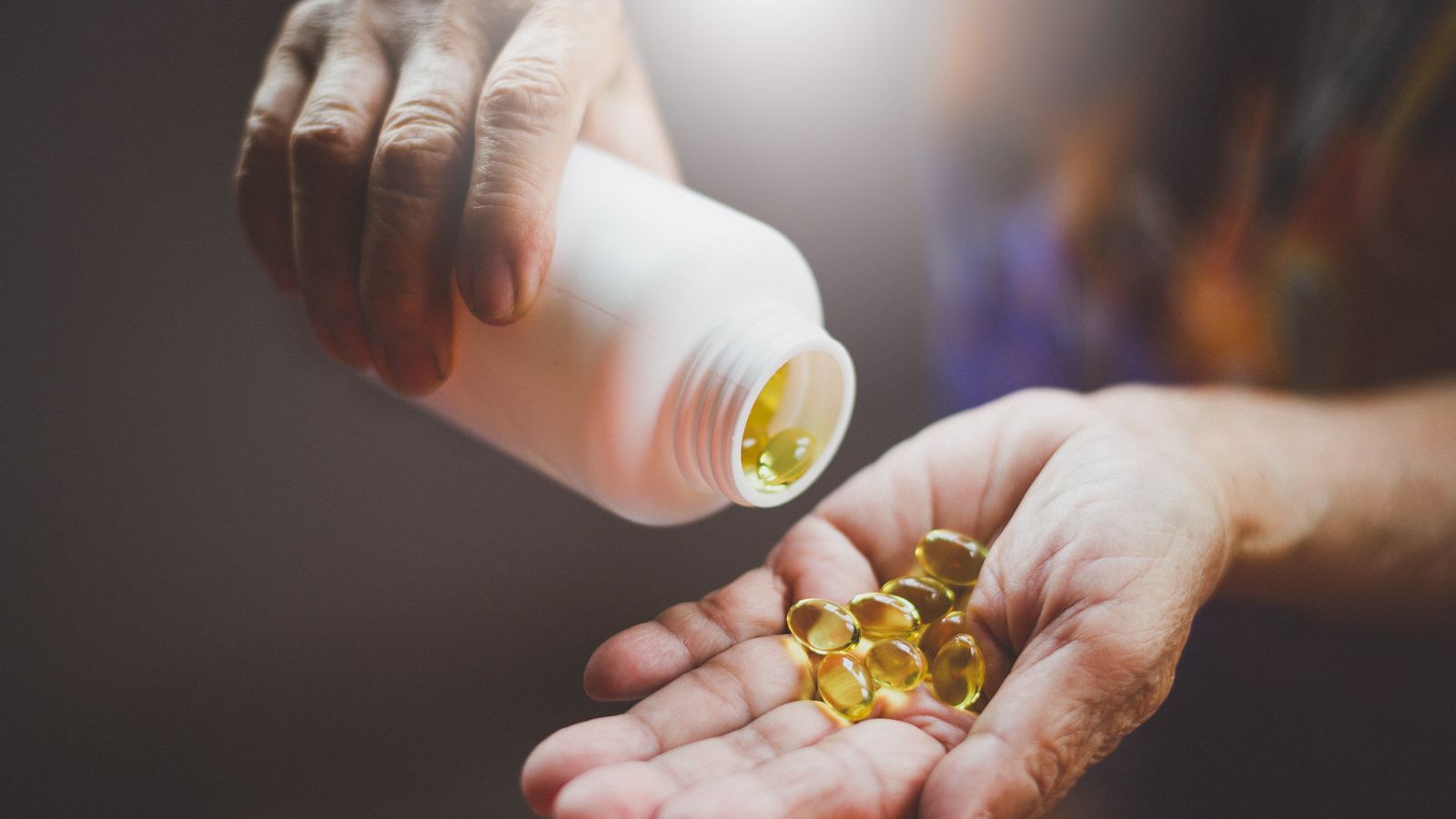Free vitamin D deliveries will be offered to around 2.7 million vulnerable people by the government, officials have said.
Vitamin D is necessary for immune system health, leading experts to question whether it may help reduce the risk or severity of the coronavirus.
Care homes across England will be sent the supplement automatically for their residents, in plans revealed on Saturday.
People who are classed as extremely clinically vulnerable will be given the chance to opt into the scheme in order get a supply for their own homes.
The deliveries of a four-month supply of vitamin D will begin in January.
Everyone should take 10 micrograms of vitamin D a day between October and March, according to Public Health England, which stresses the importance of the elderly, those who do not go outdoors, or people with dark skin taking it.
Most people should be able to get regular vitamin D from natural sunlight between March and September, but during the rest of the year, many people do not get enough.
There are also fears that as a result of lockdowns triggered by the COVID-19 pandemic, many people may be at a higher risk of deficiency.
Those who pay for the supplement are being advised to take it now, even if they are eligible for the free service.
Health Secretary Matt Hancock said: “Because of the incredible sacrifices made by the British people to control the virus, many of us have spent more time indoors this year and could be deficient in vitamin D.
“The government is taking action to ensure vulnerable individuals can access a free supply to last them through the darker winter months.
“This will support their general health, keep their bones and muscles healthy and crucially reduce the pressure on our NHS.”
Research is ongoing into whether or not there are links between COVID-19 and vitamin D, including a project at Queen Mary University in London, which is looking to see if correcting a vitamin D deficiency can reduce the risk or severity of the virus, or any other respiratory infections.
Mr Hancock commissioned the research “to ensure we explore every potential opportunity to beat this virus”.
